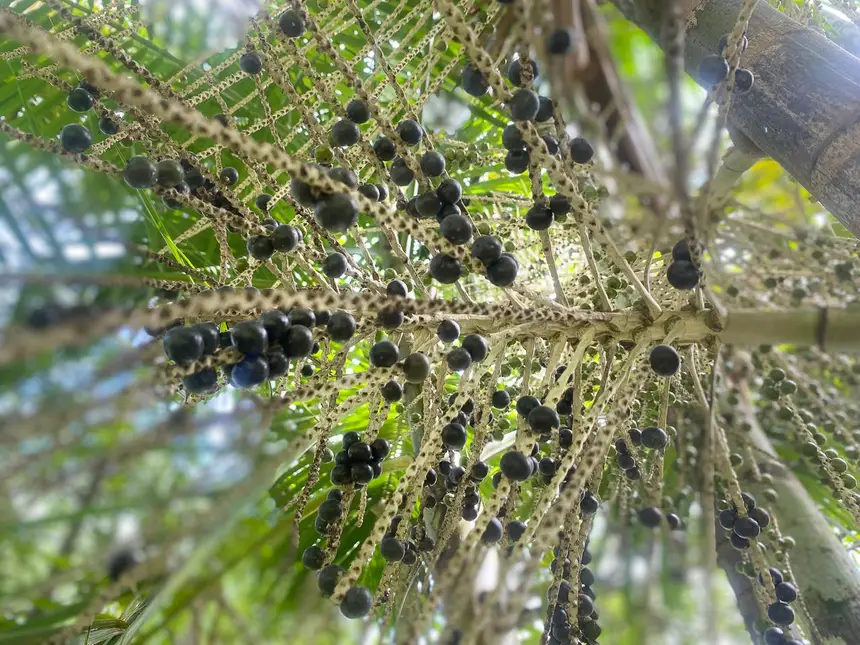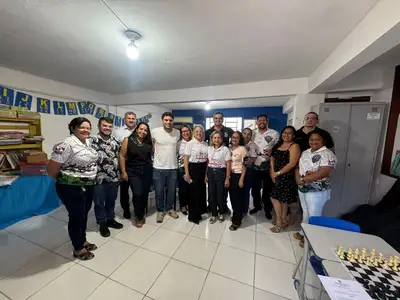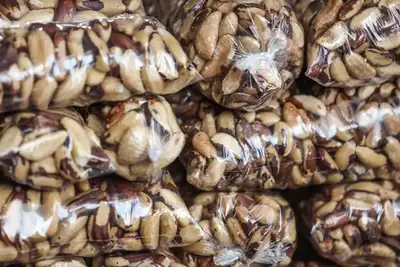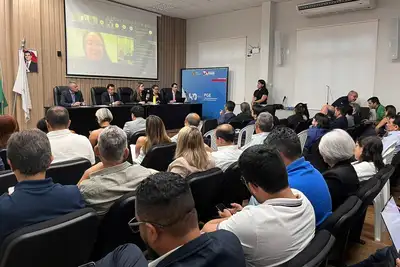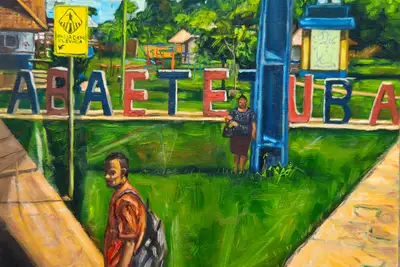Emater contributes to better rural productivity of young people in the Belém Islands region
The Technical Assistance Company works, among other activities, to include young adults as beneficiaries of the National Agrarian Reform Program (PNRA)
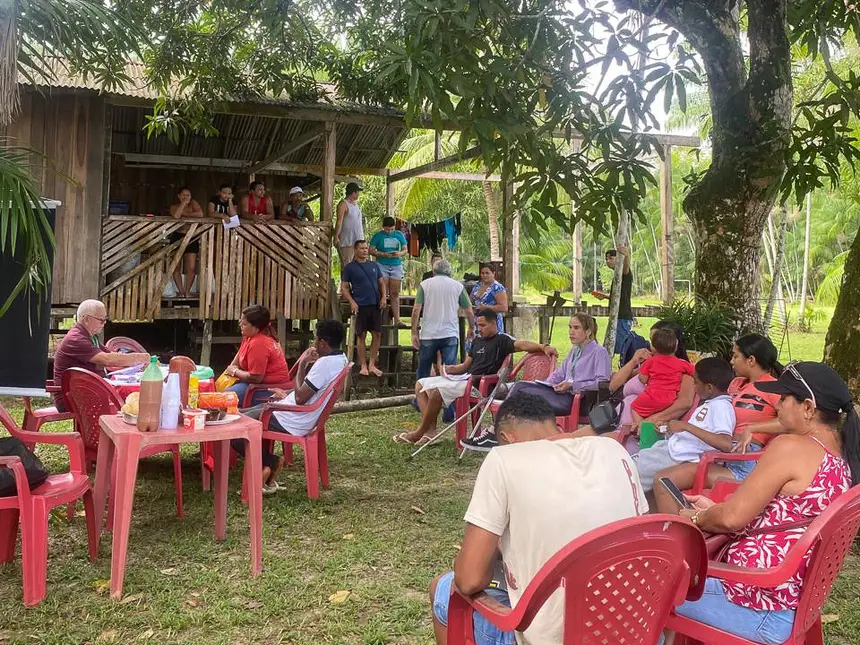
The couple Carla Cristina Farias, 30, and Ronivaldo dos Anjos, 23, in a stable union for three years, are expecting their first child. The baby is due in November and will be the newest resident of the federal settlement Ilha Grande, located in the southern territory of Belém, the capital of Pará. "We haven't discovered the sex yet and haven't thought about names. What we know is that he or she will be born and grow surrounded by nature," sighs the mother.
The two-hectare plot with native açaí and cocoa planting is now owned by the forming family, having been detached from Ronivaldo's parents' house: the Lot of Cris and Polaca, on the Bijogó River, starting from the Furo da Paciência, flowing into the Guajará Bay.

The inclusion of young adults as beneficiaries of the National Agrarian Reform Program (PNRA) before the National Institute of Colonization and Agrarian Reform (Incra) was made possible due to the daily in-person work of the local office of the Technical Assistance and Rural Extension Company of the State of Pará (Emater): since the beginning of the year, specialists have intensified a kind of census of the new generations of riverside dwellers in Belém.
The main tool is the national family farming registration (caf). With the caf issued by Emater, the settlers become eligible for access to any public policies in the family farming sector, such as rural retirement, rural maternity aid, rural credit, and supply of products for school meals.
Succession
Under current terms of use issued by the Secretariat of the Union's Heritage (SPU), the pioneers of Ilha Grande settled there about 40 years ago. At this moment, the grandchildren of these first occupants are getting married, having children, and taking on their own households: in practice, family production units (upfs) of another ownership are emerging. Just in June, more than 30 families were thus recognized, in a collective effort, with the support of the Association of Residents and Agro-extractive Producers of Ilha Grande (Ampaig).
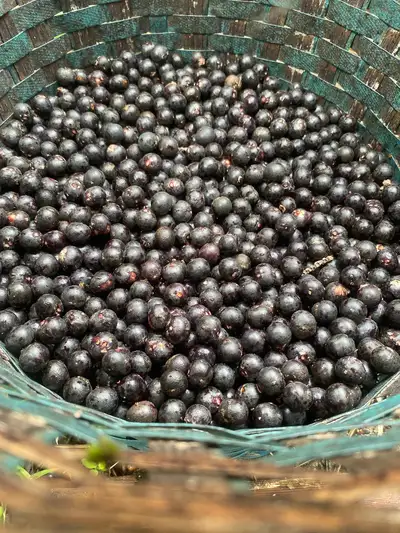
“It was as if it were a generation of 'forgotten' people. The riverside youth of the federal settlements in Belém found themselves in a limbo of invisibility in terms of public policies: they formed new families, until then unnoticed by the State. Emater is the arm of the Government of Pará that first sees these families and informs their existence in the context of officiality. It is a door being opened to rights and guarantees, in the dynamics of rural family succession,” points out Emater agronomist Lucival Solin.
For the president of Ampaig, Marcos Cardoso, 45, better known as ''Marquinho”, Emater provides "great help" in a challenging scenario: “The youth of Ilha Grande comes with a leading role, and the cultural and socioeconomic flagship is the açaí. The açaí itself is a very profitable business, but we deal with a production chain that still lacks a lot of support, in terms of technology, rural credit, and marketing. We see Emater as a midfield, an essential collaboration,” he states.
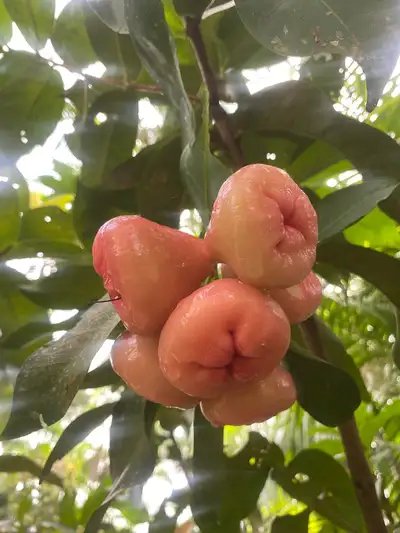
The Association represents more than 200 riverside dwellers, with properties averaging four hectares. The estimated annual production of floodplain açaí in the Community, through extractivism, is over 80 tons.
Aside from what is allocated for the daily consumption of families, the seeds are sold raw at the ports of Belém, with an annual gross revenue of almost half a million reais.
Stories
Emater's work in the Belém islands dates back to 2010. According to institutional reports, the productive systems in environmental protection areas (apas) are typical managements with agroecological innovation, without dependence on external knowledge or high levels of inputs.
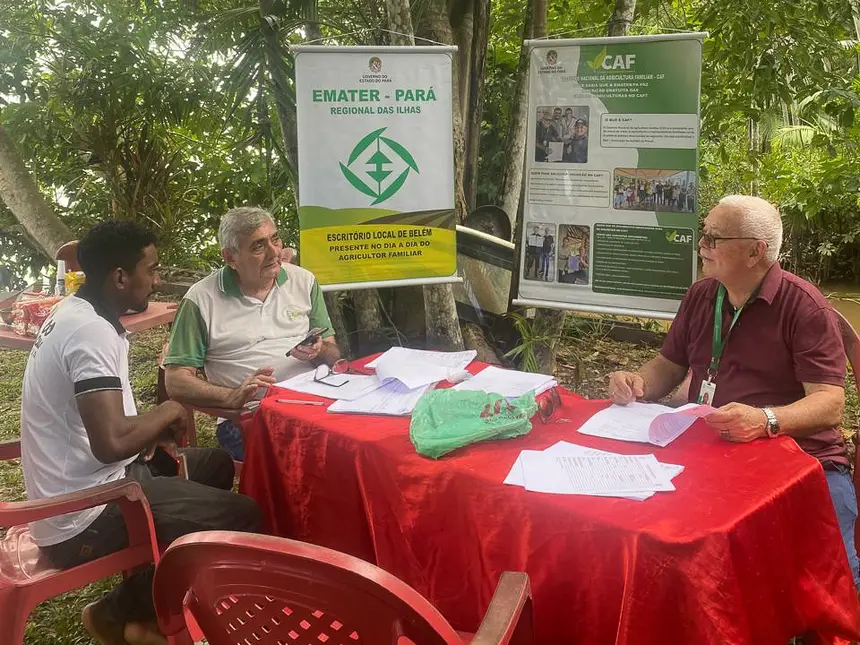
Emater's forestry engineer Luís Heleno Castro understands that Emater's results aim for "sustainable solutions": “The inheritance there, from grandfather to father, from father to son, is not just patrimonial: the legacy is of a rich and blessed ecosystem of the Amazon estuary: waters, forest, fauna. Emater not only embraces these stories: Emater is part of them,” he declares.
The story of the couple Edilza Rosário, 51, and Ocimar, 54, both with the last name Da Conceição, intertwines with Emater's services: on June 27, one of their sons, Ocinaldo, 30, was registered by the extension team as being ahead of his own family and with exclusive possession of land donated by his parents.

“I feel happy because their independence is the continuity of us, of our work, of our population,” Edilza considers.
Adelson Reis, 36, speaks of the pride of working from Sunday to Sunday with the açaí of his ancestry: “It’s the tradition, something rooted, which for me is splendid to put into practice, to make it count,” he reports.
Raimundo Nonato Trindade, 57, highlights Emater as “the government that has a presence here and that works,” in summarized words. Trindade is the offspring of one of the most important female leaders of the Settlement: Maria Machado, 85, now retired from farming.
“Mom and my aunt, Maria José, fought a lot for our community - and always received support from Emater. Many achievements are due to the stance and voice of the women of Ilha Grande,” he reflects.
Text by Aline Miranda


